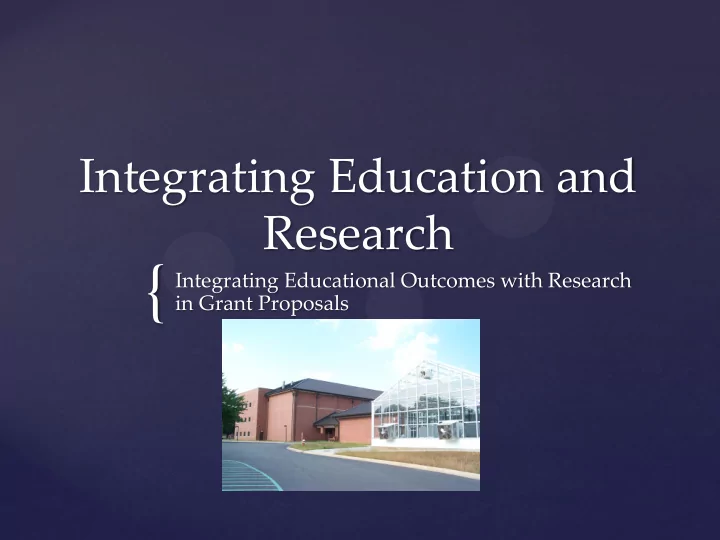

Integrating Education and Research { Integrating Educational Outcomes with Research in Grant Proposals
Knowledge is like fine wine. The researcher brews it, the scientific paper bottles it, the peer review tastes it, the journal sticks a label on it, and archive systems store it carefully in a cellar. Splendid! Just one small problem: wine is only useful when somebody drinks it. Wine in a bottle does not quench thirst. Knowledge Translation (KT) opens the bottle, pours the wine into a glass, and serves it. Knowledge is like fine wine. Abby Haynes , research officer at the Sax Institute, Austraila
50% of academic papers are never read by anyone other than their authors, referees and journal editors. The vast majority of research publications, even those in applied fields such as public health, have no influence on health policies or health services practice. Why are broader impacts and educational outcomes needed for research?
Economic growth in the 21st century Students must be ready for college and the workforce Science, technology, engineering, and mathematics (STEM) achievement STEM education for all students is linked to our nation's future prosperity, millions of open jobs STEM fields – and not enough educated workers
1. Intellectual Merit – 2. Broader Impacts – advance discovery and understanding while promoting teaching, training, and learning broaden the participation of underrepresented groups (e.g., gender, ethnicity, disability, geographic, etc.)? enhance the infrastructure for research and education, such as facilities, instrumentation, networks, and partnerships disseminated broadly to enhance scientific and technological understanding benefits of the proposed activity to society NSF criteria for review of proposals
Collaborative Team Approach Management Plan Evaluation/Assessment Plan Sustained Educational Initiatives USDA – NIFA Strong Integrated Projects
National Institutes of Health Dr. Sally Rockey is NIH's Deputy Director for Extramural Research, “……..where I encourage you to think more broadly, because even reviewers, their scientific background notwithstanding, will benefit from a clear statement of what you are doing and why it is important. And since that description will ultimately become the public’s window into your work, make it the best window possible when writing your application. “ See more at: http://nexus.od.nih.gov/all/2012/04/05/on- communicating-science/
Nishanth Tharayil Assistant Professor School of Agricultural, Forest, and Environmental Sciences { Plant Physiologist/Weed Ecologist
Education side Research side Faculty Facilities What are the challenges with integrating educational outcomes with research in grants?
Recommend
More recommend